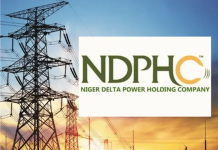The Federal Government granted approval on Tuesday for the establishment of a special purpose vehicle (SPV) to facilitate the deployment of an additional 90,000 kilometers of fiber optic cable, aiming to ensure universal internet access across Nigeria.
An SPV is a distinct legal entity created to achieve specific objectives. In this instance, the SPV will oversee the management, financing, and execution of the fiber optics project.
Minister of Communications, Innovation, and Digital Economy, Bosun Tijani, announced in a statement on Tuesday that the project would bolster the national internet backbone and optimize the utilization of the eight submarine cables already operational in Nigeria.
Tijani elaborated that the initiative aims to expand Nigeria’s fiber optic network from 35,000 kilometers to 125,000 kilometers, positioning it as Africa’s third-largest terrestrial fiber optic backbone, following South Africa and Egypt.
He disclosed that groundwork for setting up the SPV had been ongoing over recent months, with its governance and operations modeled after successful public-private partnerships such as NIBSS and NLNG in Nigeria.
Tijani emphasized, “This extensive coverage will allow us to harness the full potential of having eight submarine cables already connected to Nigeria, thereby enhancing the utilization of the data capacity offered by these cables beyond the current 10 percent usage level.”
“Building on our existing collaboration with the Broadband Alliance, this expanded connectivity will bridge the existing digital divide by linking over 200,000 educational, healthcare, and social institutions nationwide, ensuring broader segments of our society benefit from internet access,” he added.
The minister highlighted that the project aims to include at least 50 percent of the 33 million Nigerians currently without internet access, projecting a significant impact on the economy. The projected GDP growth could reach up to 1.5 percent per capita, increasing GDP from $472.6 billion in 2022 to $502 billion over the next four years.
A report released last week by the Groupe Spécial Mobile Association revealed that approximately 71 percent of Nigerians lack regular access to mobile internet. The report emphasized the importance of implementing the right policies to enable Nigeria to add 15 million internet users by 2028, underlining the critical role of universal digital connectivity in driving broader economic transformation.













